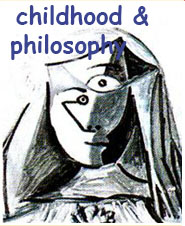what ribeirinho4 children of piriá village – curralinho/pa say about their cultural practices
DOI:
https://doi.org/10.12957/childphilo.2018.30527Keywords:
cultural practices, ribeirinho children, piriá village – curralinho/paAbstract
The presented research focuses on a portion of a larger study on “Amazon childhood”;with emphasis on the cultural practices of ribeirinho children and their respectivechildhood. The chosen locale of the aforementioned research happens to be in the PiriáVillage district; in Curralinho County/PA in the Marajoara Amazon region. It’s thelargest community in the region outside the county area; with a group of children from 0to 11 years old that reaches the percentage of 38;06% of the local population (IBGE; 2010).A place with such cultural activities and children says plenty about their lifestyle. Due tothe lack of public policies; the village endures the consequences of poor accessibility tobasic services such as health care; education; sanitation; housing and infrastructure; whichleads to aggravating problems to the population. This is particularly evident as we see thelow rates of social indicators in the Marajoara Amazon; specially for HDI and IDEB (BasicEducation Development Index). The total of interviewed are 20 children from 5 to 11 yearsold; natives of the Village; however we haven’t limited the object of study to them as weunderstand that childhood is not strictly isolated from the adult’s cultural and personalexperiences. Therefore; the listening of the families considerably strengthened ouranalysis; enabling us to perceive characteristic s of the Riberinho lifestyle; which entailsthat both children and adults are intricately connected by their peculiar lifestyles. Thestudy had as its primary objective analyse what children from the Piria village reportregarding their own cultural practices experienced throughout their daily routines in arainforest area. The theoretical methodological reference is based on childhood socialstudies partnered with childhood sociology; and also with childhood geography; infantanthropology and infant history. The investigation was conducted by a qualitativeapproach; based on infant ethinography; which is considered an effective method for theinvestigation of cultural aspects of specific social groups. The conclusions of this part ofthe study shows that the children of Pirá village master the knowledge linked to theirpersonal experiences that guide their social daily practices; such canoeing; fishing;hunting; grab açaí berries; to use matapi (trap for shrimps made of wood among others).They have the capacity of talking about their community in a simple; concrete andsensitive way; with the predominance of the oral tradition over the written; producingstories that generate a multitude of cultural and regional insights. This essay will addressfour cultural practices experienced by children.Downloads
Download data is not yet available.
Downloads
Published
2017-12-19
Issue
Section
dossier



